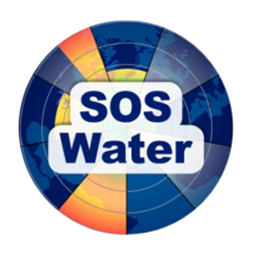About Us
What is Safe Operating Space (SOS) for Water?
Water is one of Earth’s most essential resources, yet it is increasingly under pressure from climate change, population growth, and economic development. The concept of a Safe Operating Space (SOS) for Water stems from the broader planetary boundaries framework, which defines limits within which humanity can safely operate without causing irreversible environmental damage.
In the case of water, these boundaries represent thresholds for availability, quality, and ecosystem stability—limits that, if crossed, could lead to severe consequences such as water scarcity, pollution crises, biodiversity loss, and economic instability. However, the challenge lies in defining these thresholds in a way that is scientifically rigorous, regionally adaptable, and practically useful for policymakers and stakeholders.
The SOS-Water project is pioneering the development of a science-based methodology to determine these limits, integrating hydrological, ecological, and socio-economic factors to guide decision-making on sustainable water use. Our goal is to identify early warning signals, prevent water crises, and inform long-term policy strategies that ensure resilience in water management systems across different regions.
Our Approach to Defining Water Boundaries
To accurately define a Safe Operating Space for Water, we use a multi-disciplinary approach, combining advanced scientific tools, stakeholder engagement, and real-world case studies. Our methodology focuses on:
1. Key Indicators of Water Sustainability
- Hydrological indicators: Groundwater levels, river flow dynamics, seasonalvariations in water availability
- Water quality indicators: Pollution levels, nutrient loading, salinity, chemical contamination
- Ecosystem health indicators: Aquatic biodiversity, freshwater habitat stability
- Socio-economic indicators: Water demand by agriculture, industry, and households; access to clean water
2. Advanced Scientific Tools
- Hydrological and climate modeling: Simulating future water availability and climate impacts
- Earth observation and remote sensing: Using satellite data to track real-time changes in water systems and benchmark the performance of hydological models
- AI-based forecasting: Predicting water stress scenarios based on environmental and socio-economic trends
3. Real-World Testing in Case Studies
- We apply our framework in key European and global river basins, including the Danube, Mekong, Rhine, and Júcar Rivers, to refine global water boundaries into regionally relevant, actionable policies.
- By collaborating with local governments, water managers, NGOs and communities, we ensure that our findings translate into practical water management strategies.
- Through this approach, we aim to define a set of water boundaries that are flexible enough to account for regional differences while providing clear guidelines for sustainable water management worldwide.
Key Findings:
Insights from SOS-Water Research
Our research has revealed critical tipping points for water sustainability and provided essential insights into the risks of crossing safe boundaries.
Water Stress is Intensifying AcrossEuropean River Basins
Certain regions are already experiencing water shortages due to overuse, inefficient management, and climate change impacts.
- Southern Europe is particularly vulnerable, with some basins approaching critical depletion levels, especially during prolonged drought periods.
- Timing of low and high flows and water availability will deviate from current patterns.
Crossing Thresholds Leads to Systemic Risks
- Overuse of water beyond sustainable limits can cause ecosystem collapse, agricultural losses, and socio-economic instability.
- Excessive pollution and declining water quality threaten both human health and biodiversity.
Policy and Management Must AdaptProactively
- Early intervention is crucial—reacting after a crisis occurs is far more costly and difficult than preventing it.
- Nature-based solutions, water conservation policies, and improved governance mechanisms must be implemented at both local and international levels.
- Engaging diverse stakeholders, from farmers to city planners to industries, is essential for effective, long-term water sustainability strategies.
Looking Ahead
The SOS-Water project continues to refine these water boundaries using the latest scientific insights, technological advancements, and real-world applications. Our findings are directly contributing to EU and global water policies, helping shape a future where water resources are resilient, equitably shared, and sustainably managed.
Stay tuned as we continue to update our research and provide data-driven solutions to ensure that humanity stays within the Safe Operating Space for Water.



